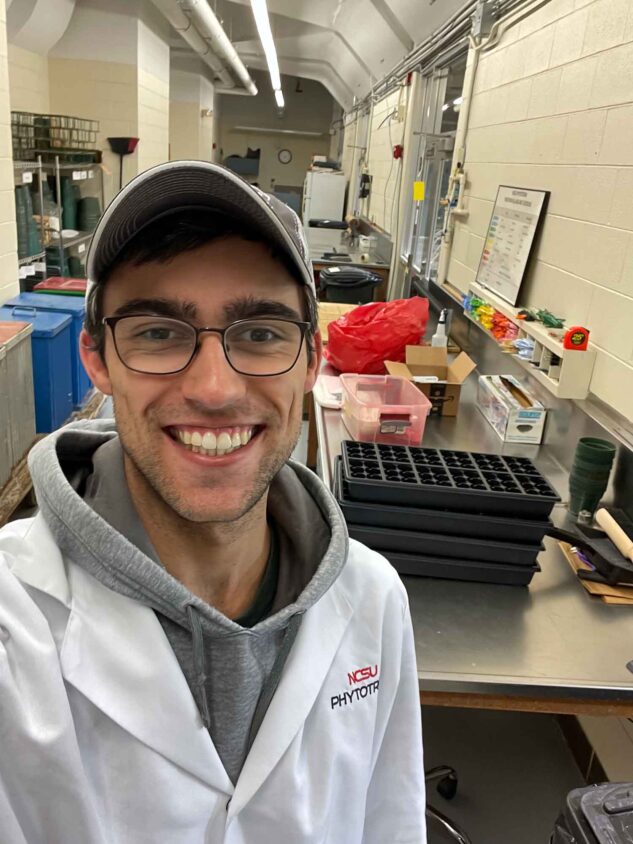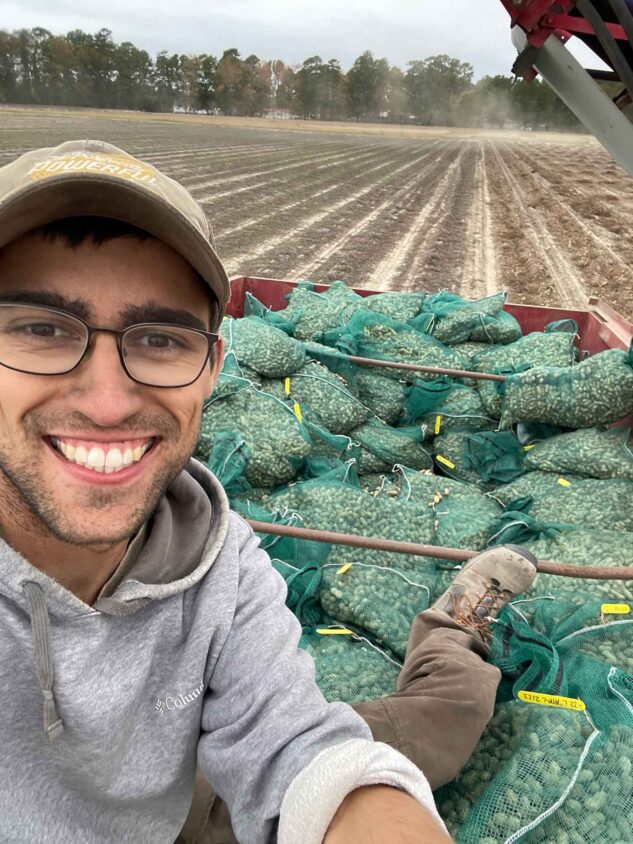Ty Seely: Speedy Peanut Breeding

Ty Seely is a master’s student studying peanut breeding under the direction of Assistant Professor Jeff Dunne in the Department of Crop and Soil Sciences at North Carolina State University. Seely recently attended the 2023 American Society for Horticultural Science Annual Conference, where he was awarded second place out of 45 students for the Controlled Environment Graduate Student Oral Competition. Seely presented his research on “Speed Breeding of Peanut for Faster Improvement in Cultivar Development,” a collaboration with Ricardo Hernandez, an assistant professor in the Department of Horticultural Science and the director of the Controlled Environment Agriculture Coalition.
Learn more about speed plant breeding and Seely’s peanut cultivar development.
What is speed plant breeding?
Speed breeding is a modern approach to breeding where we can utilize a variety of methods, usually in combination, in order to get to cultivar release earlier than with traditional breeding methods. Examples of speed breeding in our research are decreasing generation time and using marker-assisted selection. These methods reduce the time associated with the breeding process as well as the space required.

Can you tell us about your research presentation?
In our experiment, we evaluated peanut growth and development under supplemental light intensities of 0, 200, 400 and 600 μmol and harvest times of 70, 80, 90 and 100 days for each intensity. Our analysis shows that the best performing plants could be produced with a supplemental light intensity of around 475 μmol and harvested at 95 days, thereby reducing generation time by 50 days compared to traditional methods. With three generations produced each year with this method, we can begin preliminary field trials in the third year, shaving four years off the traditional timeline when being grown in North Carolina. With these greatly increased speeds, we will be able to get improved materials out to growers faster than ever before.
What are the key takeaways from your oral presentation?
With Virginia-type peanuts, a generation in the field is approximately 145 days from plant to harvest. Through utilizing controlled environments and plant manipulation tactics, we developed a method that allows for three to four generations per year, thereby allowing for the release of improved cultivars to growers far earlier than we have seen historically.
What is next for your research?
The next step in working to develop a speed breeding program is to implement our findings with a variety of breeding materials while implementing marker-assisted selection to refine our methods and timeline.

- Categories: